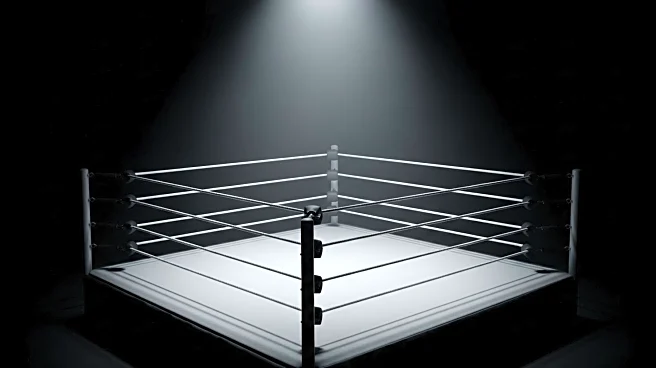What is the story about?
What's Happening?
AJ Styles has confirmed his retirement from WWE, stating that his in-ring career will conclude in 2026. During the Crown Jewel Kickoff Show in Perth, Australia, Styles expressed concerns about aging and the fear of embarrassing himself in the ring. He also emphasized the importance of spending time with his family as a key reason for his decision. Styles' announcement comes ahead of his match against John Cena at WWE Crown Jewel, marking a significant moment in his career. Styles has been a prominent figure in wrestling, with a successful tenure in TNA and WWE, holding multiple championship titles.
Why It's Important?
AJ Styles' retirement marks the end of an era for WWE and professional wrestling. As a highly influential wrestler, Styles' departure could impact WWE's storyline dynamics and fan engagement. His decision highlights the challenges athletes face as they age, balancing career longevity with personal priorities. Styles' retirement may also influence other wrestlers to consider their career paths and the timing of their own retirements. The announcement underscores the evolving nature of wrestling careers and the importance of family considerations in athletes' decisions.
What's Next?
Following Styles' retirement announcement, WWE may need to adjust its roster and storyline strategies to fill the void left by his departure. Fans and industry stakeholders will likely reflect on Styles' contributions to wrestling and his legacy. As Styles prepares for his final matches, WWE may capitalize on his retirement tour to boost viewership and fan engagement. Additionally, Styles' retirement could prompt discussions about athlete welfare and career planning within the wrestling community.
Beyond the Headlines
Styles' retirement raises broader questions about the sustainability of wrestling careers and the physical demands placed on athletes. As wrestlers age, the industry may need to address the long-term health implications and support systems for retiring athletes. Styles' decision also highlights the cultural significance of wrestling as a form of entertainment and its impact on personal lives. The interplay between professional commitments and family priorities reflects broader societal trends in work-life balance.

















